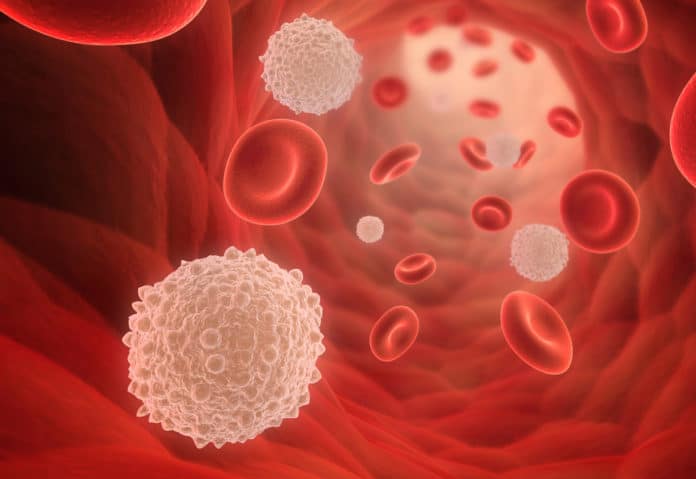Age is the dominant risk factor for infectious diseases, but the mechanisms linking age to infectious disease risk are incompletely understood.
Yale scientists recently identified a class of genetic markers in white blood cells that make individuals more vulnerable to various infections.
Mosaic chromosomal alterations, or mCAs, are a class of genetic markers in white blood cells. mCAs predispose to diverse types of infections.
For the study, scientists analyzed genetic and clinical data from nearly 800,000 individuals around the world. They found that people with mCAs had three times more risk of developing sepsis and two times more risk of getting pneumonia. They also observed association with other infections, such as digestive system infections and urinary tract infections.
Is there an association between mCAs and COVID-19?
Scientists found a correlation between the two. They identified severity in patients during the first wave of the pandemic in New York in early 2020. Among the COVID-19 patients in the study, 6% of mild cases and 17% of severe cases had mCAs.
The lead author (Seyedeh), Maryam Zekavat, an MD-PhD student in Yale’s Computational Biology and Bioinformatics program, said, “This work was largely motivated by the rush of research at the onset of the COVID-19 pandemic when the first identified risk factor for a severe COVID-19 infection was age. When I saw that mCAs were associated with COVID-19 hospitalization, I then broadened out to other infections. I was astounded to see that this is a common theme across many infections, with the strongest effect estimates being for severe infections such as sepsis and pneumonia.”
This finding suggests that mCAs are an essential common risk factor for cancer and infection and could be a marker of immune system deficiency.
The authors say that screening for mCAs could help identify individuals at increased risk for infection who might benefit from preventive measures.
Zekavat said, “The study helps us understand one biological link between age and infection risk. Hopefully, the findings will also help physicians identify individuals at increased risk of severe infections and tailor prophylactic therapies for those with these genetic markers.”
Corresponding author Pradeep Natarajan of the Broad Institute of Harvard and MIT and Massachusetts General Hospital said, “Their findings will be relevant in a post-COVID-19 world, too. I think it’s important for us to continue to understand who is at risk for severe infections — and the way that we assess that risk today is largely just by age.”
“This work helps us refine that much more and may help in future public health efforts when thinking about quarantines and distancing and prophylactic medicines; and then, for new pandemics, prioritizing early access to vaccines.”
Journal Reference:
- Zekavat, S.M., Lin, SH., Bick, A.G. et al. Hematopoietic mosaic chromosomal alterations increase the risk for diverse types of infection. Nature Medicine, 2021; DOI: 10.1038/s41591-021-01371-0
